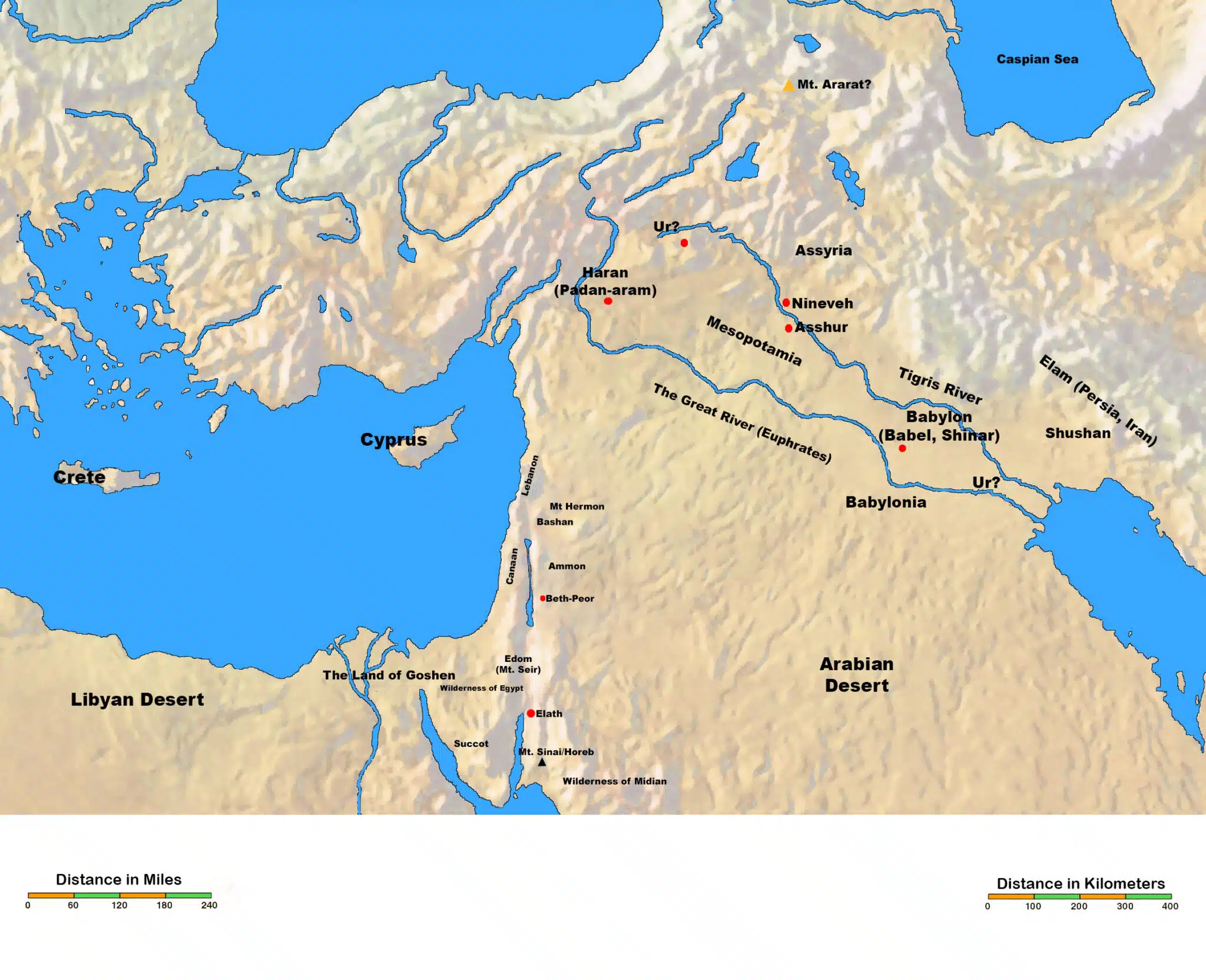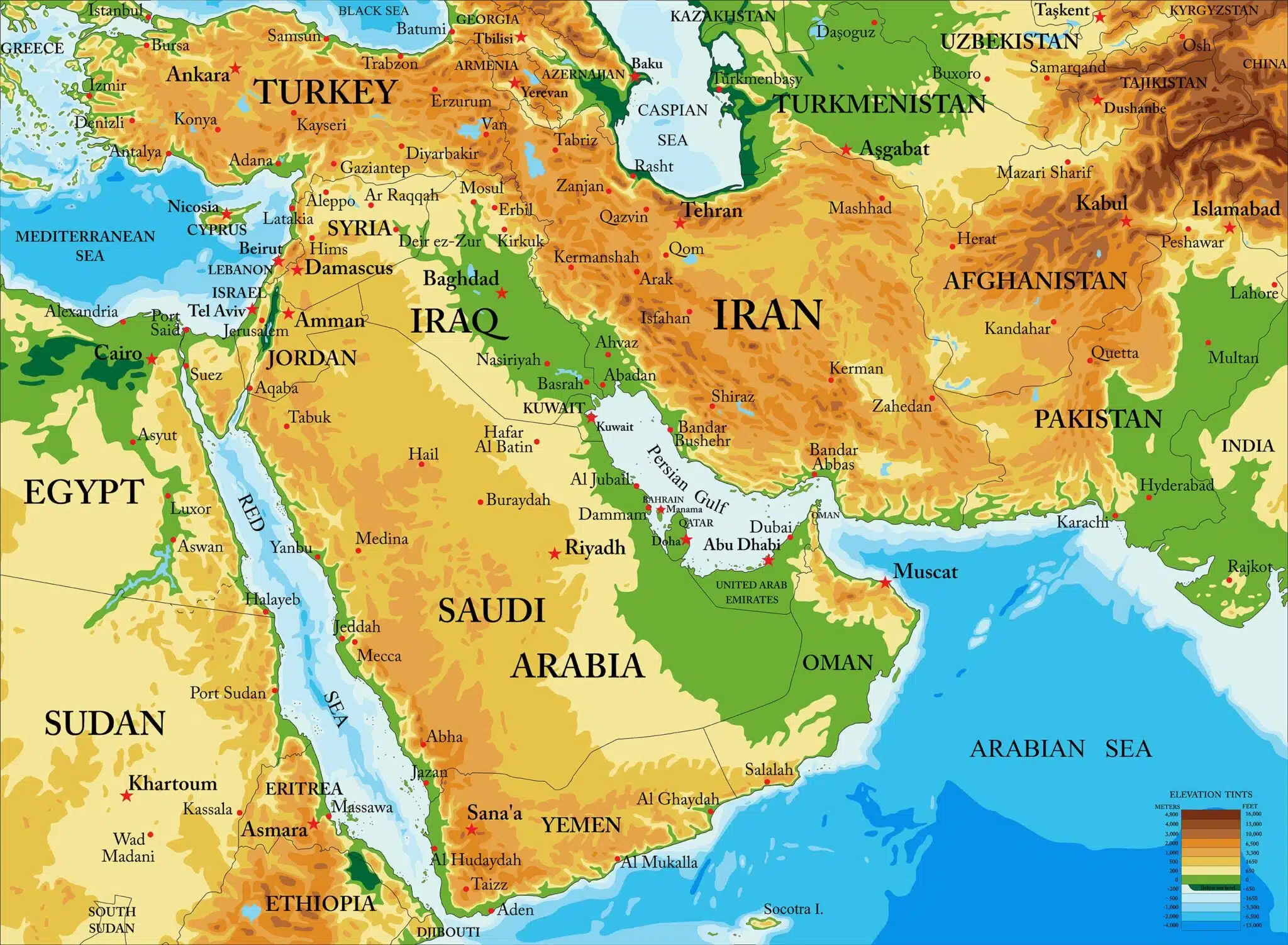At this time there was only one language used worldwide. A group of people settled in the plain of Shinar where they learned to make bricks and use mortar to build.
As the population of the world migrated, the whole earth used the same language and the same words. The original language could have been Hebrew as it is the oldest recorded language. But we are not told. Having one language, enabled cooperation.
In disobedience to God’s command to fill the earth (Genesis 9:1), the people decided to settle and build a city; they found a plain in the land of Shinar. Shinar is the plain that includes Babylon, in modern day Iraq (Daniel 1:2). When they came to Shinar they “settled” there. Later they will be “scattered” by God who confuses their language. “Settled” and scattered are antonyms or opposites in meaning. God commanded humans to fill the earth, which meant they needed to scatter. God called Abram to “leave” his land and “go.” He is a picture of obedience. The inhabitants of Babel were determined to stay and “sit tight.” It was Abram’s willingness to obey God by departing from the land of Shinar that resulted in the salvation of the stubborn people who refused to “fill the earth.” This is because God’s promise to Abraham was fulfilled in Jesus coming to earth.
Bricks made the construction of multistoried architecture possible. They used brick for stone and tar for mortar. Tar was made from bitumen, a natural, waterproof mortar (Genesis 6:14; Exodus 2:3). Bitumen was found in abundance at Hit on the Euphrates river, about 140 miles upstream from Babylon. This could have been from an oil seep. Brick making was celebrated in the ancient world. Akkadian building inscriptions, which hail the achievements of the great kings, repeatedly emphasize the making of bricks. The molding of the first brick in a new project was regarded as an important rite and was accompanied by elaborate ceremonies according to historical archeological knowledge of brick making.
Biblical Text
1 Now the whole earth used the same language and the same words. 2 It came about as they journeyed east, that they found a plain in the land of Shinar and settled there. 3 They said to one another, “Come, let us make bricks and burn them thoroughly.” And they used brick for stone, and they used tar for mortar.
Check out our other commentaries:
-
Deuteronomy 2:24-25 meaning
Moses reminds the Israelites of the time when God commanded them to confront Sihon in order to take possession of his land....... -
Jonah 1:17 meaning
The LORD spares Jonah’s life by appointing a great fish to swallow him. Jonah spends three days and three nights in the belly of the...... -
Hebrews 12:12-13 meaning
Walking by faith is like enduring physical hardship. It takes discipline....... -
Matthew 1:6a meaning
Matthew completes his first major section of the genealogy with King David. ...... -
Romans 2:22-24 meaning
The hypocrisy of those who teach the law, but do not follow it themselves, not only dishonors God, but it also harms the witness of......




